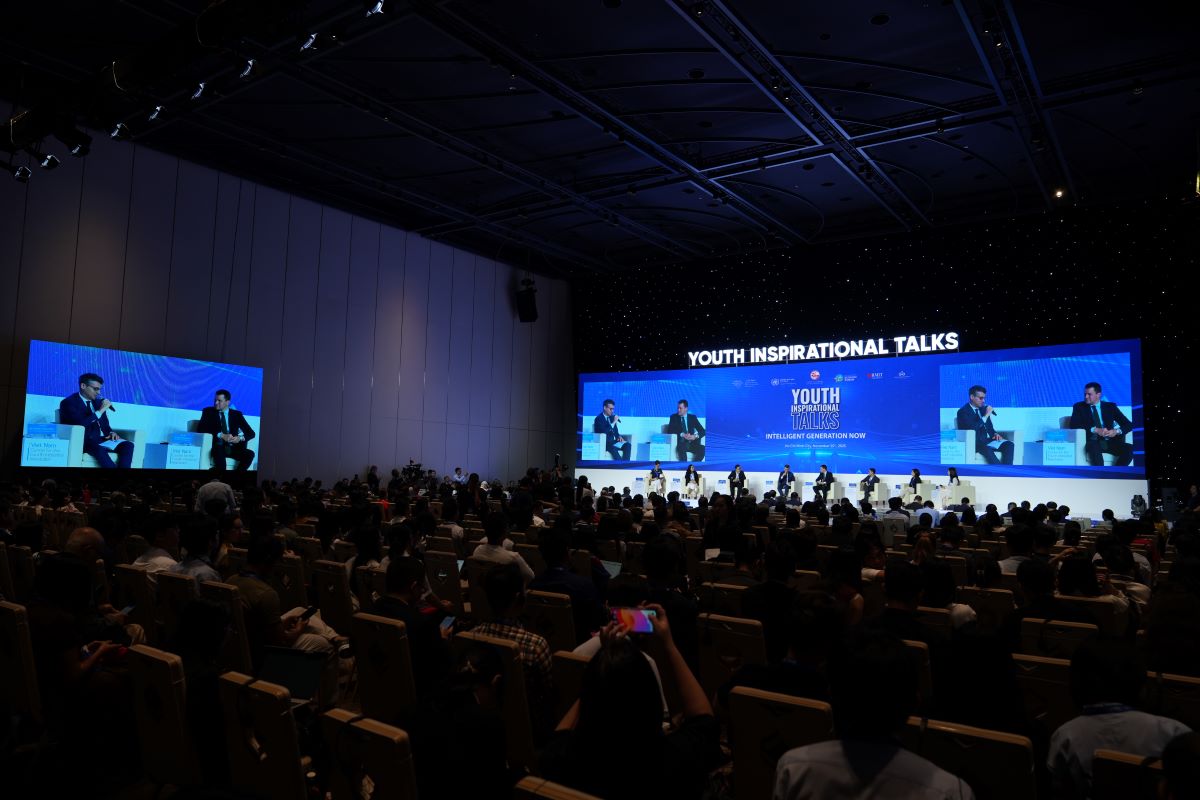Within the framework of the 2025 Autumn Economic Forum held on November 25 in Ho Chi Minh City, the seminar with the theme AI generation Now - "AI generation - Action right from today" attracted enthusiastic discussions from domestic and foreign experts.
The representative of CMC Technology Group's leadership presented the topic "AI for Everyone - The role of young people in leadership and transformation". According to CMC representative, AI is opening a new era of humanity's growth - expected to contribute nearly 15,700 billion USD to the global economy by 2030, and 150-200 billion USD to Vietnam.
In that era, technology was important - but the human factor was the deciding factor. Therefore, Vietnam needs a young generation that dares to learn, dares to be creative, dares to pioneer in AI.
The young generation of Vietnam is proving that: From students testing AI application models, young people calling for international capital for AI startups, to Vietnamese engineers leading projects at Big Tech globally.
That is the most valuable human capital - the foundation for today's young generation to continue to dream big, make big, and make Vietnam a new bright spot for artificial intelligence in the region and the world," said CMC representative.

Meanwhile, Mr. Chang Lih Kang, Minister of Science, Technology and Innovation of Malaysia, shared some of Malaysia's experiences in developing young human resources in the AI era.
Accordingly, Malaysia has built a code on AI governance and ethics (AIGE), acting as a real guideline not only for policymakers and industries, but also for young innovators, those who react as end users and future creators, learning how to apply AI technology responsibly.
To promote its strategies, Malaysia has had an AI Sandbox strategy under the National Technology and Innovation Program (NTIS). Here, startups and young AI talents can safely experiment with AI applications with the support of consultants, computing resources and legal guidance.
As of November 2025, the program has recorded 273 companies registered to be AI-related.
From Malaysia's experience, Mr. Lih Kang believes that Vietnam can consider building an AIGE rule set for young people, a simple guide to help young developers assess ethical risks early and recognize how their solutions contribute to society. The goal is not to slow down innovation, but to direct it towards common good and collective happiness.
Meanwhile, Professor Johnny Ho from Hong Kong University (China) emphasized empowering the younger generation and promoting economic growth through knowledge transfer.
According to him, innovation implemented by universities will give the government's efforts and promote sustainable development. For Vietnam, according to him, universities can increase talent training, turning young researchers into startup founders.
In general, the discussions focused on the strategy for developing artificial intelligence (AI) talents, promoting coordination between the state, businesses, academia and international organizations.
This cooperation not only creates a foundation for sustainable development for high-quality human resources but also helps Ho Chi Minh City and Vietnam enhance international competitiveness, effectively implement green - digital transformation, promote innovation and join more deeply in the global value chain.











